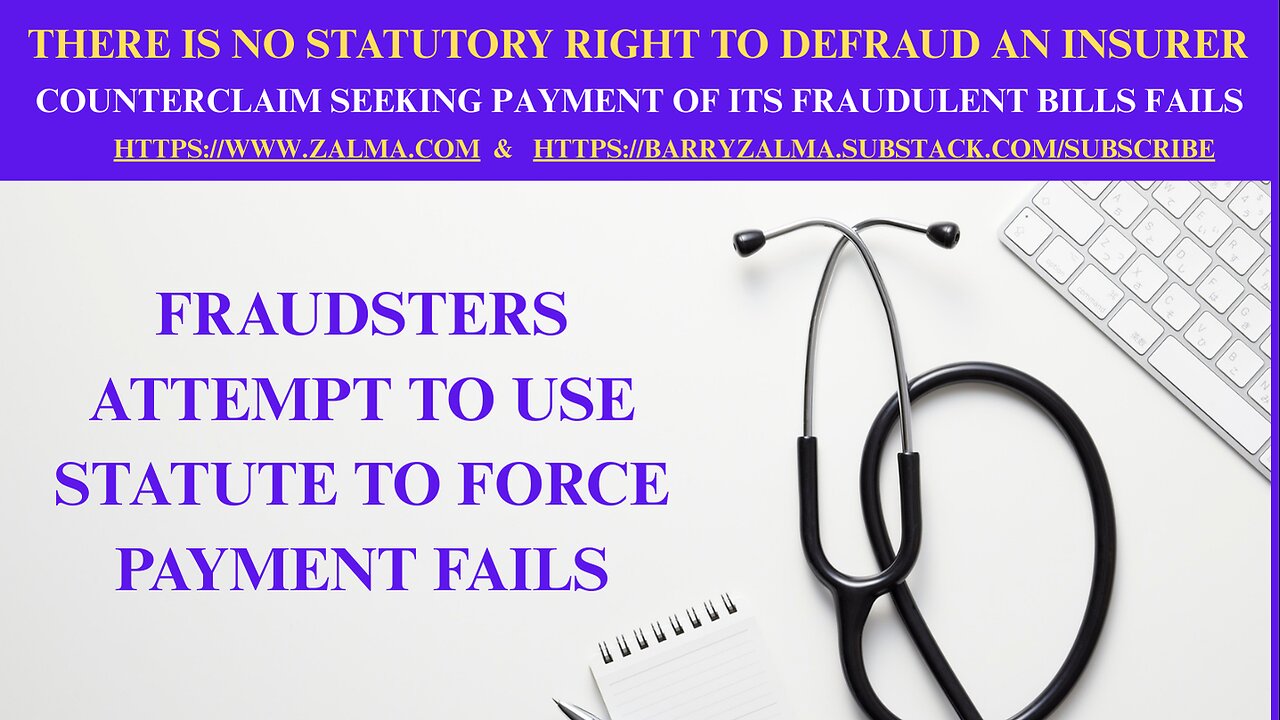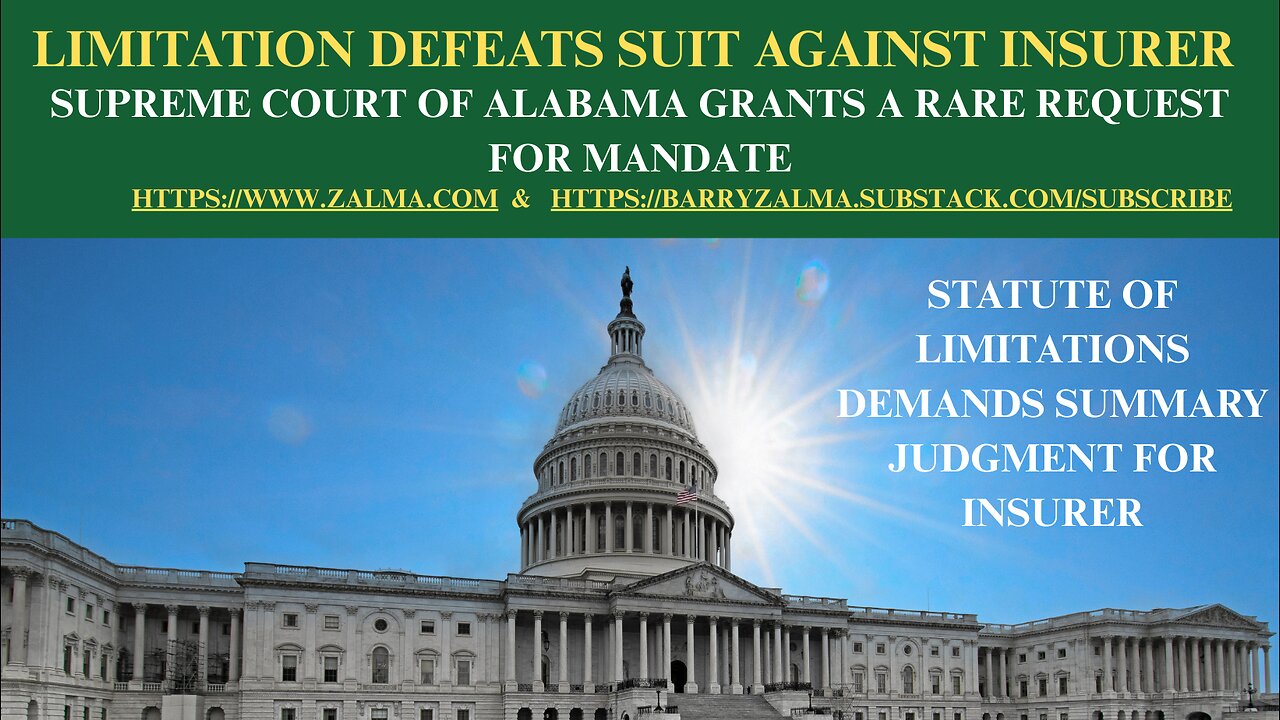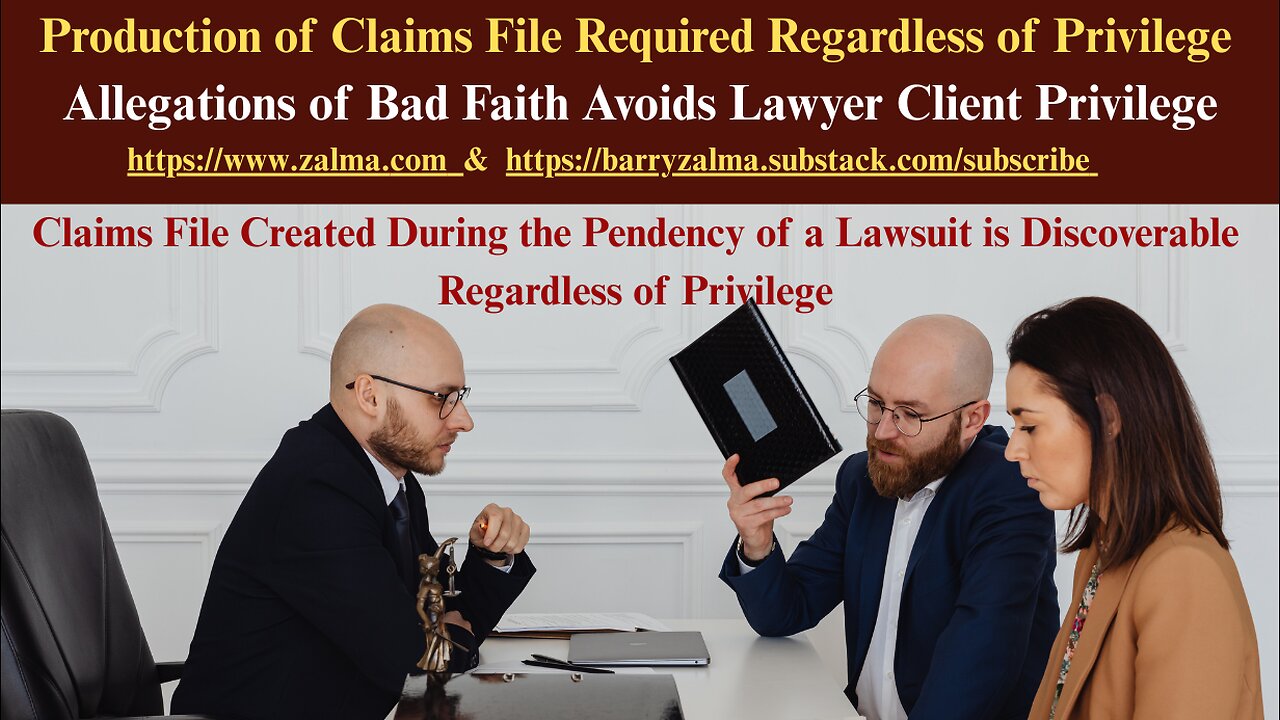
How a Thorough Fraud Investigation Dealt With False Charges of Fraud
Read the full article at https://lnkd.in/g9VAGbnn and at https://zalma.com/blog and more than 4200 posts, See the full video at https://lnkd.in/gpXBkfiN and at https://lnkd.in/gAKhCwDp
Being a good neighbor is hard work. Sometimes it’s impossible. Marsha was not a good neighbor. She would “borrow” things from her neighbors and never return them. Most of her small kitchen appliances arrived because of such loans. Marsha had an extensive collection of CDs and long-playing records, none of which she purchased. Marsha would invite herself to lunch, but never invite her neighbors to her home for lunch.
She would play her stereo at its highest volume level at all hours of the day and night. Everyone who lived within six houses of Marsha lost sleep because of her actions. None of her neighbors liked Marsha.
Marsha kept a bull terrier named “Jaws” whom she did not allow in her house. Jaws, however, would escape the backyard weekly. Neighborhood cats, rabbits and small dogs disappeared with some regularity.
The entire neighborhood universally detested Marsha and Jaws. If Marsha ever decided to move, the neighbors would throw a going away party to which they would not invite her. Everyone in the neighborhood was afraid of Marsha and Jaws. They tolerated her because they did not know how to remove her from the neighborhood.
One summer evening while Marsha was attending a concert, burglars entered her house. Jaws, sensing the burglars in the house, barked furiously but could do nothing since Marsha tied him up in the backyard. The neighbors ignored Jaw’s barking since they were afraid to offend Marsha by complaining about the noise. Marsha lost her jewelry, two television sets, two VCR’s, her stereo set and her microwave oven.
The neighbors when questioned by the police about the burglary could only report that they heard the dog barking but saw nothing. Most smiled upon learning of the burglary and whispered under their breath their pleasure at Marsha’s loss.
Two days later Marsha’s adjuster arrived and parked in front of her house. On the adjuster’s car was a sticker identifying the company for which she worked. The adjuster spent an hour interviewing Marsha and considered the report to be that of a routine burglary. The adjuster asked Marsha to complete a form listing all of the personal property stolen, its purchase date, purchase price, replacement cost and its actual cash value. Once the adjuster received the list, she expected to go through the list, arrive at an actual cash value for the items and negotiate a quick settlement with Marsha.
Marsha’s neighbors had other plans. Harry and Louise, who lived next door, looked up the address of the insurance company in their telephone book. They then sat at an old Underwood manual typewriter and wrote a letter to the insurance company that said:
“We are neighbors of Marsha, the person you insure. We know she has reported a burglary at her house to the police and is making claim for losses due to that burglary.
“The claim is a fraud. Marsha’s house was not burglarized. She did not have the items she is claiming stolen.
“If you need further detail please call us at 555- 5555.”
They then signed their names. Three other neighbors did the same.
The insurance company, faced with the accusations, had no option but to report Marsha’s claim to the fraud division of the State of California Department of Insurance as a suspected fraudulent claim; assign investigation to its special investigation unit (SIU) and conduct a thorough investigation into the facts alleged.
The SIU investigator interviewed Harry and Louise and all of the other neighbors. They convinced the investigator that Marsha was not a credible person. The investigator believed Marsha was a despicable person. He knew she was the one who the three neighbors spoken to believed to be a fraud.
The insurance company retained the services of a lawyer to examine Marsha under oath and confront her with the accusations of fraud. The fraud division, faced with the compelling evidence of the statements of the neighbors, started its own investigation and presented the case the district attorney for prosecution.
Marsha, totally innocent and the victim of a crime, was dumbfounded. Her insurance company would not pay her claim and insisted on interrogating her endlessly in front of a court reporter. She could not understand the reasons for the interrogation. She explained to the lawyer for the insurance company why her claim was valid.
Marsha faced the lawyer for the insurance company with her sworn testimony that her claim was legitimate. He also had available the reasonable and the unsworn testimony of the three neighbors. There seemed to be compelling evidence that the claim was a fraud and equally compelling evidence it was a valid burglary claim.
The lawyer, the SIU investigator and a court reporter, went back to the home of Harry and Louise. They asked Harry and Louise to give testimony under oath to establish the fraud they had reported. Harry and Louise agreed to the sworn testimony and were ready to continue with their false accusations until the lawyer for the insurance explained to them the penalties of perjury. Harry and Louise decided that although Marsha deserved punishment for her lack of neighborliness, to have her punished was not worth prison. They told the truth. They explained to the lawyer why they had told the SIU investigator that they believed Marsha had committed fraud.
On the advice of counsel, the insurance company settled Marsha’s claim promptly. The Fraud Division was advised of the false report. Harry and Louise were not punished. No one told Marsha why it took so long to resolve her claim.
If the insurance company and its lawyers took Harry and Louise’s statement at face value and denied Marsha’s claim, the insurer would have faced a lawsuit from Marsha for falsely accusing her of the fraud.
The law of California, and several other states, now require that insurers have special fraud investigation units. The law requires that those specially trained investigators investigate claims of fraud to protect the insurer and the public from the crime. The SIU investigators, however, must remember that they are also claims people whose duty is to pay all legitimate claims and to investigate the basis for any denial thoroughly.
It was this thorough investigation, including the examination under oath of Marsha and the attempted sworn statement of the neighbors that saved Marsha from a possible criminal prosecution and the insurer from a bad faith lawsuit.
Every professional claims person understand that not all obvious frauds are fraud, not all innocent claims are innocent, and it is the obligation of every claims person and SIU investigator to thoroughly investigate every claim with the intent to find that a claimed loss is appropriate and compensable.
If fraud is proved by a thorough investigation then the claim should be denied and the person making the claim should face the ire of the local prosecutor or the US Attorney.
ZALMA OPINION
Although SIU investigators are charged with conducting a thorough investigation to defeat insurance fraud, it is also their obligation to establish that an honest claim must be paid. I have personally taken hundreds of examinations under oath at the request of insurers and found, as a result, that a great majority of those claims – like Marsha’s – was determined to be a claim that needed to be paid. Insurers should never accept a charge of fraud without corroborating evidence.
(c) 2022 Barry Zalma & ClaimSchool, Inc.
Barry Zalma, Esq., CFE, now limits his practice to service as an insurance consultant specializing in insurance coverage, insurance claims handling, insurance bad faith and insurance fraud almost equally for insurers and policyholders. He practiced law in California for more than 44 years as an insurance coverage and claims handling lawyer and more than 54 years in the insurance business. He is available at http://www.zalma.com and [email protected].
Subscribe to Zalma on Insurance at locals.com https://zalmaoninsurance.local.com/subscribe.
Subscribe to Excellence in Claims Handling at https://barryzalma.substack.com/welcome.
Write to Mr. Zalma at [email protected]; http://www.zalma.com; http://zalma.com/blog; daily articles are published at https://zalma.substack.com.
Go to the podcast Zalma On Insurance at https://anchor.fm/barry-zalma; Follow Mr. Zalma on Twitter at https://twitter.com/bzalma; Go to Barry Zalma videos at Rumble.com at https://rumble.com/c/c-262921; Go to Barry Zalma on YouTube- https://www.youtube.com/channel/UCysiZklEtxZsSF9DfC0Expg; Go to the Insurance Claims Library – https://zalma.com/blog/insurance-claims-library/
Counterclaim Seeking Payment of its Fraudulent Bills Fails
Post number 5297
Read the full article at https://www.linkedin.com/pulse/statutory-right-defraud-insurer-barry-zalma-esq-cfe-03c3e, see the video at and at and at https://zalma.com/blog plus more than 5250 posts.
Fraudsters Attempt to Use Statute to Force Payment Fails
In Connecticut General Life Insurance Co. et al. v. East Coast Advanced Plastic Surgery, LLC, No. 25 Civ. 1686 (PAE), United States District Court, S.D. New York (February 24, 2026) a dispute between Connecticut General Life Insurance Company and its subsidiary Cigna Health and Life Insurance Company (collectively, "Cigna" ) and East Coast Advanced Plastic Surgery, LLC ("ECAPS" ), a New Jersey-based medical practice specializing in post-mastectomy breast reconstruction.
Cigna alleged that ECAPS engaged in fraudulent billing practices, resulting in excessive payments for services rendered ...

Supreme Court of Alabama Grants a Rare Request for Mandate
Read the full article at https://www.linkedin.com/pulse/limitation-defeats-suit-against-insurer-barry-zalma-esq-cfe-eychc, see the video at and at and at https://zalma.com/blog plus more than 5250 posts.
Statute of Limitations Demands Summary Judgment for Insurer
Post number 5296
In Ex parte Alfa Mutual Insurance Company and Jeffery Dimoff, In re Kinsman Investments, LLC v. Alfa Mutual Insurance Company and Jeffery Dimoff, No. SC-2025-0478, Supreme Court of Alabama (February 27, 2026) a rare Petition for Writ of Mandamus was granted and the trial court was ordered to enter summary judgment on behalf of Alfa.
Facts
Kinsman Investments, LLC (“Kinsman”) owned an apartment complex in Mobile, Alabama, which suffered significant damage from Hurricane Katrina in August 2005. At the time, the property was insured by Alfa Mutual Insurance Company (“Alfa”). Jeffery...

Claims File Created During the Pendency of a Lawsuit is Discoverable Regardless of Privilege
Read the full article at https://www.linkedin.com/pulse/production-claims-file-required-regardless-privilege-barry-ehroc, see the video at and at and https://zalma.com/blog plus more than 5250 posts.
In Melissa Eddy, and Alexis Eddy v. Farmers Property Casualty Insurance Company, f.k.a. Metropolitan Property and Casualty Insurance Company, APPEAL NO. C-230298, Court of Appeals of Ohio, First District, Hamilton County, 239 N.E.3d 1003, 239 N.E.3d 1000, 2024-Ohio-1047 (March 22, 2024) ruled on discovery issues with regards to the privileges asserted by Farmers.
Facts
In February 2020, Melissa Eddy was injured in a car accident while her husband, Alexis Eddy, was driving. The accident was caused by another driver, Pamela Shooner. Melissa sustained neck injuries that required surgery. At the time, the Eddys held an ...

Contract Breaches that Allow Multiple Different Grounds to Make a Policy Void
More from Excellence in Claims Handling Substack for Subscribers Only. You can Subscribe to my substack at https://barryzalma.substack.com/subscribe
Posted on February 24, 2026 by Barry Zalma
You’re reading from the free part of Excellence in Claims Handling until you reach the paywall. You should consider joining as a paid member to get full access to articles for members only, to our news, analysis, insurance coverage, claims, insurance fraud and insurance webinars, by clicking at the “subscribe” link below.
If an insured breaches one or more material warranties and increases the risk covered by the policy, the contract may be voided by the insurer, depending on the jurisdiction. It is, therefore, essential that every claims investigation include efforts to establish compliance with every warranty.
In Cummings v. Fire Insurance Exchange, 292 Cal. App. 3d 1407, 249 Cal. Rptr. 568 (1988), the Court of Appeal ...

Passover for Americans
Posted on February 19, 2026 by Barry Zalma
“The Passover Seder For Americans”
For more than 3,000 years Jewish fathers have told the story of the Exodus of the enslaved Jews from Egypt. Telling the story has been required of all Jewish fathers. Americans, who have lived in North America for more than 300 years have become Americans and many have lost the ability to read, write and understand the Hebrew language in which the story of Passover was first told in the Torah. Passover is one of the many holidays Jewish People celebrate to help them remember the importance of G_d in their lives. We see the animals, the oceans, the rivers, the mountains, the rain, sun, the planets, the stars, and the people and wonder how did all these wonderful things come into being. Jews believe the force we call G_d created the entire universe and everything in it. Jews feel G_d is all seeing and knowing and although we can’t see Him, He is everywhere and in everyone.We understand...
Passover for Americans
Posted on February 19, 2026 by Barry Zalma
Read the full article at https://www.linkedin.com/pulse/passover-americans-barry-zalma-esq-cfe-5vgkc.
“The Passover Seder For Americans”
For more than 3,000 years Jewish fathers have told the story of the Exodus of the enslaved Jews from Egypt. Telling the story has been required of all Jewish fathers. Americans, who have lived in North America for more than 300 years have become Americans and many have lostthe ability to read, write and understand the Hebrew language in which the story of Passover was first told in the Torah.
Passover is one of the many holidays Jewish People celebrate to help them remember the importance of G_d in their lives. We see the animals, the oceans, the rivers, the mountains, the rain, sun, the planets, the stars, and the people and ...

















